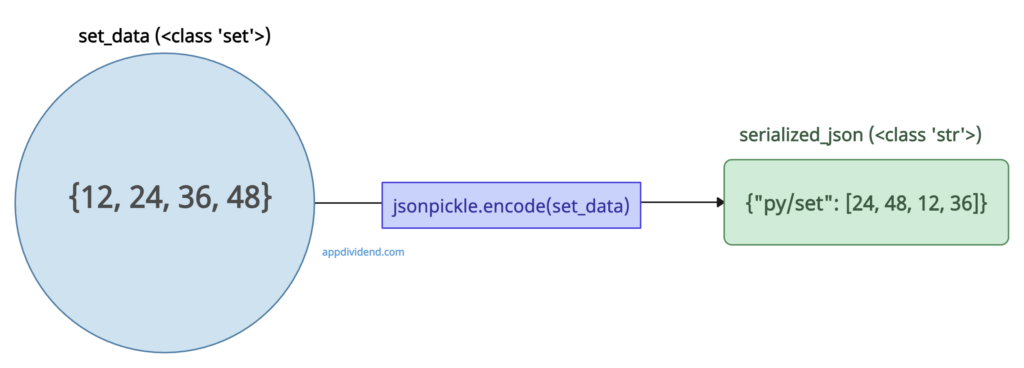To serialize the Set in Python, you can use the “jsonpickle.encode()” method.
The jsonpickle library is capable of serializing and deserializing objects (including sets) into JSON format.
This is particularly useful when you need to serialize more complex objects that the standard json library cannot serialize directly.
Here is the step-by-step guide:
Step 1: Install jsonpickle module
To work with the jsonpickle module, you must first install it in your system.
python3 -m pip install jsonpickleStep 2: Import jsonpickle
import jsonpickleStep 3: Use jsonpickle.encode()
import jsonpickle
# Create a set
set_data = {12, 24, 36, 48}
print(set_data)
print(type(set_data))
# Serialize set
serialized_json = jsonpickle.encode(set_data)
print(serialized_json)
print(type(serialized_json))Output
{24, 48, 12, 36}
<class 'set'>
{"py/set": [24, 48, 12, 36]}
<class 'str'>Keep in mind that the output may include additional metadata to accurately reconstruct the serialized object when deserialized.



Philip Kumah Jr
Thanks for this . saved me A milli